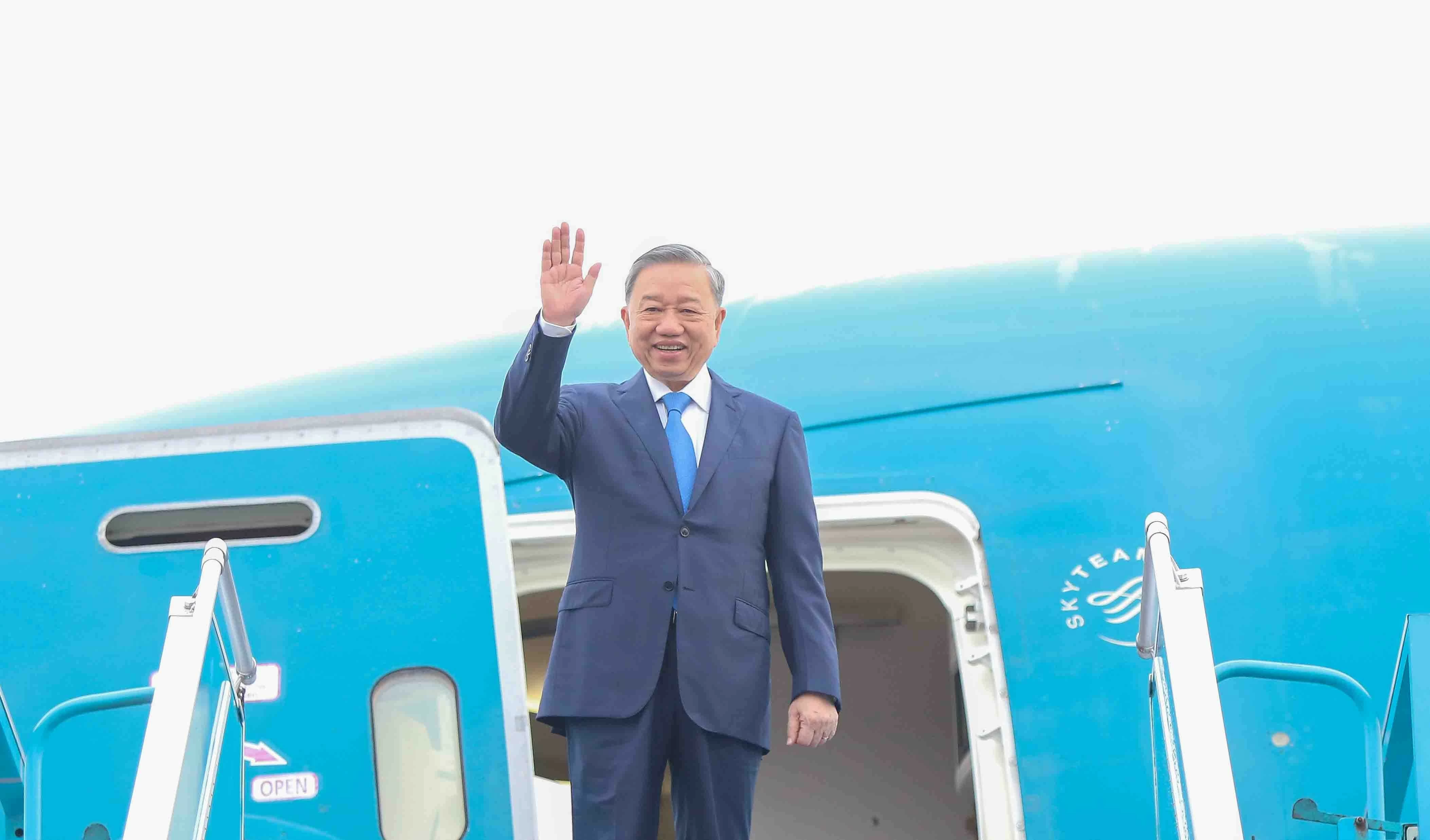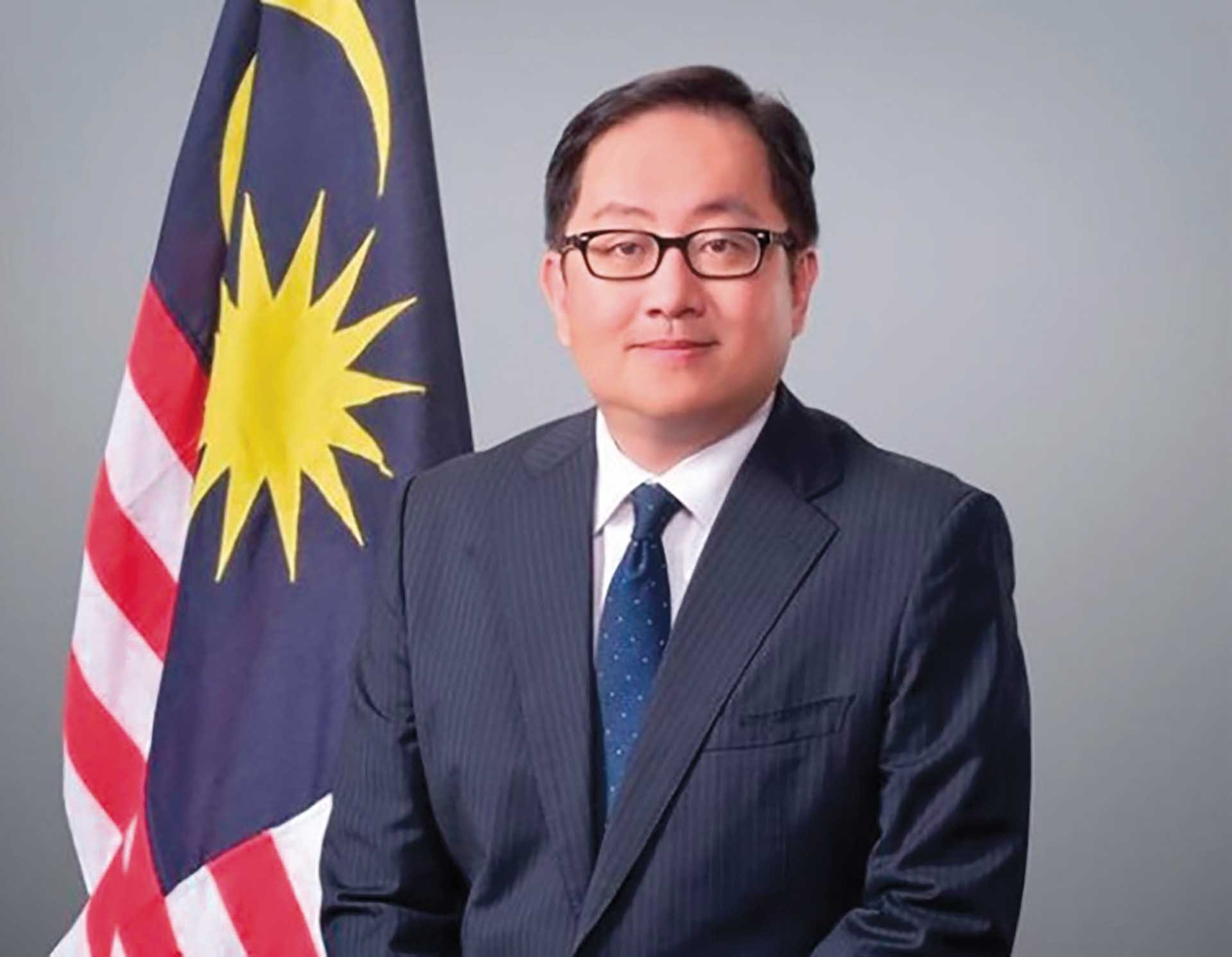
Malaysia-Vietnam relations are extremely promising: Malaysian Ambassador
Latest
 |
| General Secretary To Lam and his spouse will visit Malaysia from November 21-23. (Photo: QT) |
Could you please share us your expectations about the General Secretary of the Communist Party of Vietnam To Lam’s visit to Malaysia to our relations?
The visit of Party General Secretary To Lam to Malaysia is highly significant in strengthening the already excellent ties between Malaysia and Vietnam. Malaysia and Vietnam established a Strategic Partnership in 2015, almost a decade ago. Last year, Malaysia and Vietnam celebrated 50 years of diplomatic relations, marked by a successful official visit by our Prime Minister, Dato Seri Anwar Ibrahim, to Hanoi in July.
 |
| Malaysian Ambassador to Vietnam Dato Tan Yang Thai. (Photo: Malaysian Embassy) |
This year, the visit by General Secretary To Lam at the invitation of our Prime Minister reflects both countries' commitment to strengthening our ties. Vietnam is an important partner for Malaysia, and the hope is for the visit to provide a catalyst for even greater economic, trade, and investment cooperation, cooperation in renewable energy and green technology, information and communications technology, digitization and digital economy, tourism, cultural and educational exchanges.
The visit also signals our close working relations within ASEAN. As Malaysia assumes ASEAN Chairmanship in 2025, we will rely on this close relationship to achieve a more integrated and resilient ASEAN region.
Looking ahead, the future prospects for Malaysia-Vietnam relations are extremely promising, and we are committed to building on this momentum.
What are your assessments about new cooperation opportunities in bilateral relations in the current trend of digital and green economic development?
One of the most pressing global challenges today is climate change, and both Malaysia and Vietnam recognize the urgent need to transition to a sustainable, low-carbon economy. In the case of Malaysia, we have committed to achieving a net-zero greenhouse gas emission by 2050, reaching 31 percent renewable energy capacity by 2025, and becoming a responsible nation in the fight against climate change and global warming despite contributing to less than 1 percent of global emissions.
On the digital economy front, Malaysia has launched MyDIGITAL since 2021. MyDIGITAL - the Malaysia Digital Economy Blueprint is the country’s overarching framework to accelerate the country’s digital transformation over the next decade. The blueprint aims to create a sustainable digital economy by 2030, focusing on such key areas as Digital Infrastructure, digital government, digital business, digital skills and innovation, and R&D.
In this regard, we expect that the upcoming visit will lead to enhanced cooperation in green and renewable technologies as well as digitization and sustainable and resilient digital economies.
Malaysia and Vietnam have significant opportunities to strengthen our bilateral cooperation in the area of digital and green economy, especially as we face shared challenges related to environmental sustainability, climate change, and the transition to low-carbon economies, as well as ensuring digital inclusion among our citizens, overcoming skill gaps and building strong regulatory frameworks that support rather than hinder the development of digital and green economies.
Both countries have set ambitious goals for reducing carbon emissions and increasing the share of renewables in their energy mix. Hence it would be important that we explore increased cooperation in the areas of technologies that would be crucial to ensuring the reliability and sustainability of renewable energy systems.
 |
| Malaysia and Vietnam have significant opportunities to strengthen our bilateral cooperation in the area of digital and green economy. |
Furthermore, Malaysia and Vietnam share the same aspiration of harnessing the potential and development of digital economies to accelerate growth and bring prosperity to our people. Opportunities for Malaysia and Vietnam to cooperate in building a strong and sustainable digital economy include focusing on such areas as digital infrastructure, e-commerce, Industry 4.0, digital governance, fintech, education, and cybersecurity.
By pooling our resources and expertise in these sectors, Malaysia and Vietnam can play a leading role in driving Southeast Asia’s energy transition as well as strengthening our positions in the rapidly evolving digital landscape.
Malaysia will assume the role of ASEAN 2025 Chairmanship. Could you please share Malaysia's priorities in ASEAN 2025 and expectations about Vietnam's contribution?
2025 is a significant year for ASEAN. We will be commemorating the 10th anniversary of the formal establishment of the ASEAN Community. Building on this achievement, ASEAN plans to adopt the ASEAN Community Vision 2045, which will chart our strategic direction for the next 20 years.
As the ASEAN Chair in 2025, Malaysia's priorities will focus on several key areas that align with the region's evolving needs and aspirations. These include strengthening ASEAN centrality, enhancing ASEAN intra-trade and investment, promoting ASEAN’s capability in leveraging on advances in sciences, technology, and innovation, and harnessing the benefits of digital transformation and new technologies. Malaysia will also ensure that the elements of inclusivity and sustainability, which is the theme for 2025, remain a focus in our regional Community-building efforts.
2025 is also a significant year for Vietnam in relation to ASEAN, as it marks 30 years of Vietnam’s membership. As for our hope for Vietnam's contribution to Malaysia’s chairmanship, Vietnam’s strategic position and active role in ASEAN will be essential as we work together to address challenges such as climate change, digital transformation, and regional security. I believe that Malaysia and Vietnam, as close partners, can continue to work hand-in-hand in strengthening ASEAN’s global influence and ensuring the security, prosperity and cohesion of our region.











